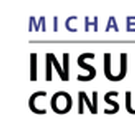Formal medical training may not equip you with the tools necessary to navigate the job market. The 3rd and final post of this series will focus on the contract negotiation process.
Introduction
In the previous two articles, we discussed navigating the job market and the interview process. In this third and final article in the series, we will delve into the contract negotiation process.
Contract Negotiation
How do I request the contract?
On the job interview trail, one commonly asked question is how many practices a candidate should request a contract from. Requesting a contract implies a serious display of interest on the part of the candidate, as the practice must reveal significant financial and legal information in the contract. The expectation of the practice is that the candidate will negotiate after receiving the contract. If the candidate immediately declines a contract without negotiating in earnest, the practice may assume the candidate was simply seeking information and not genuinely interested in the position, and, to be blunt, “playing them.” Though highly situation-specific, it is reasonable to request a contract from up to three practices.
A practice that has a strong interest in a particular candidate may preemptively send a contract, without the candidate requesting one. This is a strong gesture and may seem enticing for the candidate, but it also represents a somewhat atypical, if not desperate, move on the part of the practice. It may suggest that the practice has difficulty recruiting an employee for the position. Alternatively, a practice may send a "term sheet," which is a pre-contract that outlines key contract variables such as income, paid time off, work schedule, and termination clauses.
How do I negotiate the terms of the contract?
The progression of which terms are negotiated and at what time is highly variable and dependent mostly on how the employer would like to proceed. In some cases, the employer may begin to negotiate the key terms of the contract, namely salary, bonus structure, and work schedule, prior to sending the full contract. In other cases, the employer may send the contract with these key terms included, and they, among other terms, are then negotiated. As a candidate, it is better to negotiate before the employer puts the terms on paper, as this provides more leverage for negotiation. Therefore, once you decide to request a contract from a practice, it is advisable to start negotiating at that moment, so that you can provide your voice and input early in the process.
There is no magic strategy for negotiation, and much of this depends on the intricacies and push/pull of the conversations, as well as the candidate’s relationship with his or her future employer. However, it is important to have a rough understanding of the average salary and typical bonus structure for an ophthalmologist in the geographic area of the prospective practice. Requesting a contract from at least two practices provides the candidate with a greater understanding of the income landscape and a metric for comparison.
It is important to hold steadfast when one believes that the employer is undervaluing a candidate’s worth. Despite the friendliest and smoothest relationship one can share with a future employer, make no mistake that this employer may start the negotiations with a below-market base salary and bonus structure, and a work schedule that is more favorable to their interests. Understand that this is not personal and merely represents typical negotiation tactics. Armed with knowledge of the local average income, you can effectively and confidently counter to achieve more reasonable terms.
Should I solicit the services of an attorney?
It is strongly recommended to solicit the services of an attorney, in particular an attorney well versed in healthcare employment. For those seeking their first job, there are healthcare employment attorneys who specialize in working with residency and fellowship graduates. The best avenue to find this specific type of attorney is to ask your co-trainees and individuals who have gone through the employment process in previous years.
The attorney will review the contract and provide more details about more terms than one thought imaginable. One might become giddy and aim to negotiate all of these terms. However, that would be a huge mistake. One cannot come in strong, demanding the world from a future employer - it is not practical and not good business practice. Choose five or so important terms, prioritize and focus on them. And again, the negotiation is a dance - if you feel that the employer yielded more than expected for one of your demands, go easy on the next term. If you feel that the employer held ground more than expected on one term, push stronger on the next one. It’s essential to keep in mind that the employer also has an attorney who will be providing counsel on counter-negotiating the same terms that you would like to negotiate.
Now, should one ask an attorney to negotiate on his or her behalf? This is controversial, though ideally one would negotiate directly with the employer, as the goal is to develop a burgeoning relationship with this individual. Besides, the candidate’s attorney would unlikely negotiate with the employer directly, but rather, with the employer’s attorney. This simply comes off as a bit distant and unengaging. All else being equal, it is recommended that the candidate negotiate directly with the employer.
How do I interpret the compensation arrangement and what are collections?
Compensation typically comprises a base salary and a bonus. The base salary is the dollar amount to be paid to the employee throughout the year regardless of productivity. The bonus is paid to the employee depending on productivity, which is typically defined as collections or RVUs (relative value units).
In private practice, productivity is typically measured by collections, which represent the dollar amount that the employee earns for the practice in a given year. However, the definition of a "year" may vary, and it is important to discuss this with an attorney.
On the other hand, academic institutions may use RVUs to measure productivity. The RVU is a standardized metric that measures the amount of work performed, the difficulty or risk of the work, or the training required to perform the work, rather than the actual income received from the work. This method of measuring productivity is intended to provide an assessment of the value of the work performed.
To determine the amount of bonus owed in terms of collections, we look at the bonus structure, which comprises a bonus threshold and a bonus percentage. The bonus threshold represents the dollar amount that the candidate must collect, beyond which any additional amount collected applies towards the calculation of the bonus. The bonus percentage represents the portion of the amount beyond the bonus threshold that is paid to the employee as the bonus.
As an example with fictitious numbers, consider a base salary of $200,000, a 3.0x bonus threshold, and a 25% bonus percentage. This means that the employee will receive a bonus equal to 25% of all collections beyond $600,000 (3.0 x $200,000). So if the employee collects $800,000 in a year, the bonus amount would be 25% of the $200,000 collected beyond the bonus threshold, which amounts to $50,000. Therefore, the total income would be the $200,000 base salary plus the $50,000 bonus, resulting in a total income of $250,000.
One important point is that insurance carriers often provide payment weeks to months after the date of service, so collections may significantly lag behind their respective clinical encounters. For example, the collections received in February may not solely comprise the collections from clinical encounters in February. Instead, they may include the first week of February, a large portion of collections from January, and even some clinical encounters from November and December of the previous year. It is important to understand this in order to hold appropriate expectations, namely that for the first year in practice, the lag in collections may impact one’s ability to achieve the bonus threshold.
There is typically an inverse proportion between base salary and bonus structure, and the two extremes do exist (i.e., high base salary with a nearly unattainable bonus threshold, and no base salary with income calculated as a percentage of one’s collections). Most ophthalmologists can expect a typical 40-hour work schedule, though many practices include weekend days, as well. In some cases, if the employee works a weekend day, he or she receives a weekday off the following week; in other cases, the employee simply works that weekend day as an extra day.
What other terms are important to consider?
The author of this article is not an attorney, and none of the information provided in this article should be considered professional legal advice. For any legal questions, it is crucial to seek appropriate legal counsel. Nonetheless, it is essential to understand that in addition to the core terms of income and work schedule, two other aspects of the job contract are of significant interest to the candidate: the termination clause and restrictive covenant.
The termination clause answers the question: how quickly and in what way can I leave this job, and what are the repercussions? Ensure that you have a complete understanding of the terms of the termination clause, since, for various reasons, this may not be your final job.
Restrictive covenants, or noncompete clauses, always garner much interest among candidates. Essentially, these clauses prohibit an employee from providing services within a certain geographic area for a certain time if certain criteria are met upon the termination of employment. Note the use of the word “certain” three consecutive times - legal counsel is highly advised to ensure that the candidate fully understands the details and technicalities of their particular restrictive covenant. Employers include these covenants to protect their interests, as without them, the employee could theoretically quit and then establish a competing practice across the street.
Additional points to consider include:
- If there are any devices, programs, or pieces of equipment that you believe are needed to carry out your work, negotiate these into your contract. It will be more difficult to do so once you begin employment, as the leverage you hold over negotiations decreases as soon as you sign the contract.
- If teaching, research, or academic affiliations are of importance, discuss these during the contract negotiation process.
- Discuss the payment of malpractice insurance, including tail coverage (the details of which may be discussed in a future article).
- Most contracts include reimbursement for some or all the following: continuing medical education (CME), conferences and meetings, society memberships, journal subscriptions, and onboarding expenses, among others.
Work closely with an attorney and negotiate politely though firmly with your prospective employer, focusing on the key terms that matter most to you. Contract negotiation should be an engaging and dynamic process - this is your chance to vouch for yourself and set yourself up to hit the ground running on day one! The author wishes all candidates the best of luck in their negotiations!
Want to get more from OphthoQuestions?






Please login to comment.